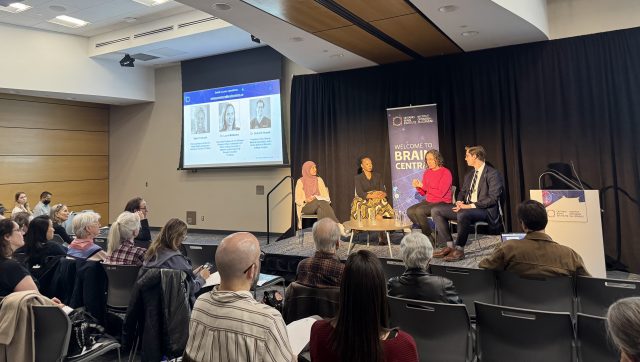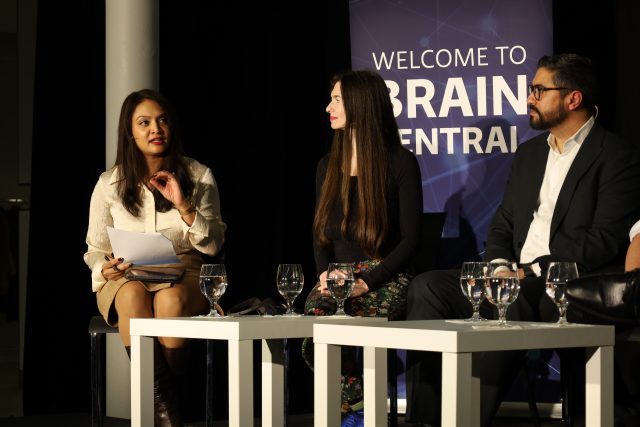
Do you recall the old adage, ‘sharing is caring’? We teach our kids the value of sharing because we believe it’s an important skill to develop. As we get older, the skill of sharing takes on new meanings, like cooperation or generosity, but the core concept remains unchanged; we give, and we get – it makes relationships and society work better. At OBI we encourage that our stakeholders share their research knowledge because we believe that, by sharing what we learn from research, we can empower people to better care for their brain health.
Brain research, like all research, can be complex. The challenge is how to distill that information into something people can understand and make use of it to improve life quality. As a great clinical scientist, Dr. Peter Rosenbaum, once remarked, it is not dumbing down, it is clarifying up. This process has a technical term called Knowledge Translation (KT), but at its core there’s an unstated expectation that the research community share what we know in order that people can benefit. For example, through KT, the general public has access to the latest evidence-based information and tools, clinicians embed research into practice, policy makers improve regulation based on data and the government makes strategic investments based on public needs. Through these steps, if we do this well, then as a society, we can convert knowledge into action.
In the same vein, KT tailored specifically for the public takes many forms at OBI. OBI Public Talks are a popular way that we bring knowledge from the lab into the community. They provide an informal setting for researchers to talk about their work, its implications, and even their personal motivations and challenges, all together making research more accessible and less abstract. For example, in a year that has been especially challenging for individuals with mental health, OBI hosted a talk discussing treatment options for depression. This event provided attendees evidence-based information directly from the experts – bringing together researchers, advocates, patient partners, and the public resulted in a rich, engaging discussion about an important topic.
Given that we live in the age of information there is an abundance of knowledge available at our fingertips through the internet, but there is no guarantee that our searches turn up truly valid information supported by evidence. This becomes a challenge when individuals are looking to learn more about brain health and brain disorders. To ensure that Ontarians can consult reputable sources for such information, we’re building an online library of resources that people can turn to and trust, including reports, toolkits, videos, free public talks and latest research information through our Brainnovations Newsletter.
One example from this resource toolbox includes the Ontario Epilepsy Guidelines, developed by EpLink, OBI’s epilepsy research initiative and Critical Care Services Ontario who brought together clinical and community care leaders from the epilepsy community to provide a comprehensive approach to epilepsy care in Ontario. This resource is useful for health care providers that details the latest in epilepsy research; for patients and families, sharing with them the latest care options, and for community epilepsy agencies, listing recommendations related to the management of epilepsy.
While education and information are crucial, KT can help bring about system-wide improvements and encourage people to become leaders in their communities – sharing what they learn. One such initiative we’re proud to support is a partnership between the Chiefs of Ontario, the Ontario First Nations Young People’s Council, and the University of Western Ontario. Stories from our Roots is a youth-led, life promotion project that uses photography and digital storytelling to support young people build resiliency and reduce risk factors associated with youth suicide. By sharing messages of hope, belonging, meaning and purpose with peers across the province, the workshop series equips youth to lead the program within their own communities and support their peers, creating a ripple effect of positive and ongoing impact. Through this initiative some found hope through a sense of community, others found new friendships, and one in particular, a new business idea called Sakena Media.
Knowledge translation is a fundamental component embedded into each of OBI’s activities – taking what is done in the lab and bringing it to life – a principle that we hold up as a standard of excellence. Our work, our investments, and our central focus must always be on making sure that the end goal is to improve quality of life for those living with brain disorders and those who support them. This begins with empowering the public to become active partners in their own care.


